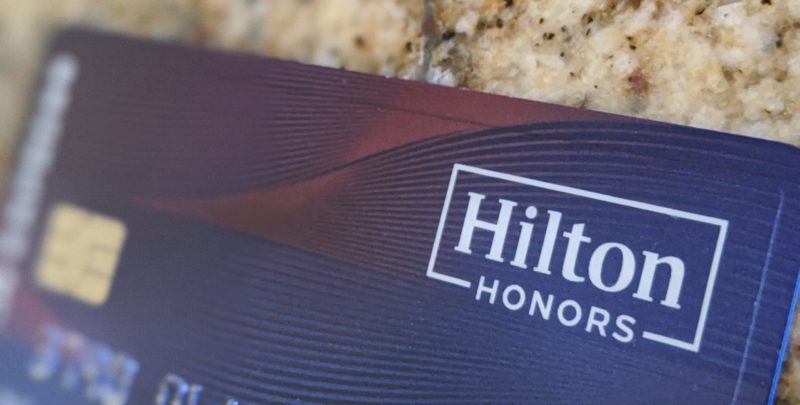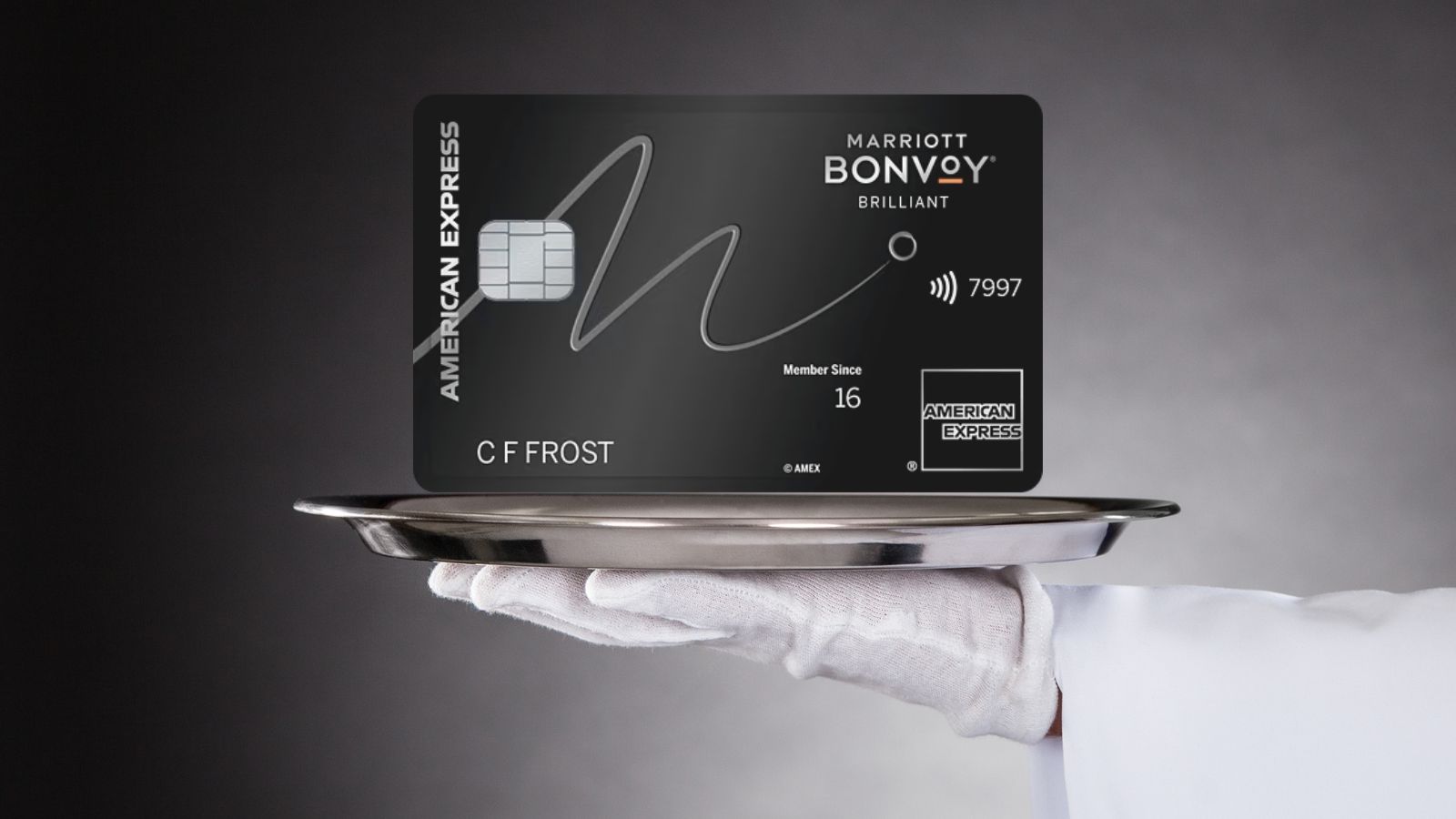Many hotel credit cards offer free night certificates as anniversary bonuses to incentivize you to keep a card, as “big spend bonuses” to entice you to spend more on the card or even as part of a welcome offer to make it more attractive to apply for the card in the first place.
These certificates usually have a numerical point value attached to them, meant to denote the maximum value that the cert can have when redeemed for a night at a hotel. That said, they also have expiration dates and varying degrees of inflexibility when trying to redeem them. They aren’t as desirable as the equivalent amount of points.
But how valuable are they? In this post, we’ll try to estimate how much each of the major chains’ free night certificates are worth, using our recently-updated Reasonable Redemption Values as a guide.

How we estimate free night certificate value
The basic idea here is to value free night certificates based on their maximum point value and then to reduce that value by a “fudge factor” to account for the many ways in which free night certificates are less desirable than the equivalent number of points. For example, with a Marriott 35K free night certificate, we start with the value of 35K points but then lower that amount to account for the fact that free nights are harder to use and less flexible than points towards that maximum value.
Maximum point value of hotel free night certificates
These days, some free night certificates are capped, some are capped within a range and some allow “topping-off” with additional points so they can be used at more expensive properties.
For example, IHG free nights that come with the old IHG Select card can be used at hotels that cost up to 40,000 points per night, with no ability to top them off, while the anniversary certificates for the IHG Premier and Premier Business can be topped off with an unlimited amount of points, making them much easier to max out.
Marriott offers some certs good for up to 35K points, some for up to 50K and others that are good for up to 85K. All of them can be topped-off with up to 15,000 points from your account.
Hyatt goes by category and offers free nights capped at either category 4 or category 7, regardless of whether the property is at off-peak, standard or peak pricing. Hilton complicates things a bit because they don’t cap their free nights nor do they publish a maximum standard award price for their hotels. That said, while there are a few Hilton properties that cost up to 150,000 points per night for standard rooms, most top out at 120K (and the cert is valid for a standard room at both).
Here are the max point values that we now use for calculating free night first year value:
- IHG: 40K points or 60K points
- Hyatt:
- Category 1-4: 15K (standard price for category 4 hotels)
- Category 1-4: 15K (standard price for category 4 hotels)
- Category 1-7: 30K (standard price for category 7 hotels)
- Category 1-7: 30K (standard price for category 7 hotels)
- Hilton: 120K
- Marriott: 35K, 40K, 50K or 85K points
Note that we’re using 120k points for the Hilton certs, even though they can be used for properties that cost up to 150k/night. The reason why is that there are only a handful of those 150k properties; 95k-130k is much more common. So, we’ve decided to keep the “points maximum” for determining that value at 120k.

Factors that affect the value of hotel free night certificates
There are a number of reasons why free night certificates are worth less than the equivalent number of points. For example:
- Hard expiry: Most free night certificates expire after one year. Points, meanwhile, are usually valid much longer and also can usually be extended by simply earning or spending points.
- Inflexible: A 40K free night certificate can be used for one night at a 40,000 point hotel, but unlike with 40K points, it cannot be used for two nights at a 20,000 point hotel. Similarly, you can’t stack multiple free night certificates to book a higher priced room. For example, you can’t use two 40K certificates to book an 80K night.
- No 4th or 5th night free awards: Unlike points, free night certificates cannot be used towards 4th or 5th night free awards.
To account for all of the above, we developed “fudge factors” for each type of free night certificate. These are numbers less than 1, so can be multiplied with the maximum value of a certificate in order to calculate first year value. Here are the fudge factors the FM team developed, along with a brief explanation of each:
- Hilton: 0.85
- These are the least restrictive certs since they are uncapped and can be used any day of the week.
- IHG “top-offable”: 0.85
- These have the same fudge factor as Hilton certs because you can add an unlimited number of points to book more expensive rooms, so they’re easy to maximize.
- Hyatt (12-month expiry): 0.8
- Unlike with Marriott or IHG, Hyatt doesn’t allow adding points to book higher category hotels. On the other hand, Hyatt’s certs work just as well with hotels that are peak priced as those that are standard or off-peak. This is adjustment that we’re applying to the Chase-issued certificates with a 12-month expiration date.
- Marriott: 0.8
- While Marriott offers the ability to add points to top-off a free night certificate, they cap this ability at 15,000 points per night.
- Hyatt (6-month expiry): 0.7
- Unlike with Marriott or IHG, Hyatt doesn’t allow adding points to book higher category hotels. On the other hand, Hyatt’s certs work just as well with hotels that are peak priced as those that are standard or off-peak. The certificates that Hyatt awards for Milestone Rewards are only valid for six months, so have a more severe fudge factor.
- IHG “fixed”: 0.7
- When IHG includes 40k or 60k certs as part of a welcome offer, these are usually not able to be topped-off with additional points. Because of this, it’s extremely hard to get the max value of the cert as a property would need to be priced at exactly 40k or 60k. Accordingly, these certs have the most severe fudge factor.
Hotel free night certificate values
Based on the above, we have updated the values of free night certificates in our best offers page; as our RRVs change, the following certificate values will periodically change as well.
Here’s how we currently “value” hotel free night certificates:
- IHG:
- 40K points (fixed) x 0.70 fudge x 0.61 RRV = $170.80
- 40K points (can be topped-off) x 0.85 fudge x 0.61 RRV = $207.4
- 60K points (fixed) x 0.70 fudge x 0.61 RRV = $256.20
- Hyatt:
- Category 1-4 (6-month expiry): 15K points x 0.70 fudge x 1.8 RRV = $189
- Category 1-4 (12-month expiry): 15K points x 0.80 fudge x 1.8 RRV = $229.5
- Category 1-7 (6-month expiry): 30K points x 0.70 fudge x 1.8 RRV = $378
- Category 1-7 (12-month expiry): 30K points x 0.80 fudge x 1.8 RRV = $459
- Hilton: 120K points x 0.85 fudge x 0.48 RRV = $498.60
- Marriott:
- 35K points x 0.80 fudge x 0.76 RRV = $212.80
- 40K points x 0.80 fudge x 0.76 RRV = $243.20
- 50K points x 0.80 fudge x 0.76 RRV = $304
- 85K points x 0.80 fudge x 0.76 RRV = $516.80

Summary
It’s important to understand that it is always possible to get less value or more value from your free night certificates. The same is true when we estimate the reasonable redemption value for points. Our goal is to find reasonable target values at which it’s “reasonable” to expect that you will get this much value, or more, from your free night certificates.





Hilton certs can be used with 5th night free as long as you’re using both points and FNCs combined. So it doesn’t work with 4 FNCs but it does work with 1 to 3. The FNCs count as the prorated of 5 nights, meaning that you take the 4 night points price and divide by 5 and that’s what it counts for. So 5 nights at a 95k property using 1 FNC and the remainder points would be ((95k * 4) / 5) * 4 = 304k + 1 FNC. Each FNC would take off 76k from the amount owed, but only up to 3 FNC redeemed. This used to be a lot easier with 1 in 2 agents able to do it 5yrs ago but now it seems to be 1 in 10 knows how to do it but have still had success this year.
For the 60K IHG certificates, those might be able to be converted into 60K points by booking and then canceling. They are not ANCs. I do believe I did that when my significant other got four free 40K nights as a SUB.
i do have to say I don’t agree with you and others on this idea of fudge factors. I see a difference between being less versatile and less valuable. Yes, there are restrictions, time limits and you can’t do the four nights for three. But if anything, it means the fudge factor should go towards making point purchases have a higher value, not making certificates less valuable.
i would like to repeat what I have see previously:
“I appreciate you comparing cash prices that are refundable to point purchases, a lot of people overlook that and fail to realize that adds a lot of value per point. You are ahead of a lot of your peers in that are, well done!
Your compensation for resort fees is also insightful.
I see your calculation for CPP and I understand it, but I politely disagree with your methodology.
Since you earn points paying cash and you can buy points for 0.5 cents per point on sale, which is what all smart IHG members do, I feel the calculation should be:
CPP=(Total Cash Price-Resort Fee-[Points earned on stay x 0.005])/Points Price
You are not paying extra points, you are earning extra points towards a future stay and I think that is something of critical importance. It is not an extra cost in points now, it is a loss of earnings that can be applied to a future stay. Therefore, the value of the points need to be subtracted from the cash price, not added to the points required.
For the IC in Chicago for NYE, points are 42K at $364.47 total price with 27.26 fee. The points earned for a Premier card holder would be 7386 points.
My calculation then yields 0.72 cents per point versus your value of 0.68.
Of course, as others including yourself have noted, Select card holders would get a value of 0.80 cents per point. Also, as you and others have noted, the use of 4 nights for 3 greatly increases the value. Again, as others including yourself have noted, combining both the Select and 4 for 3 night discounts make for an extremely appealing value.
There are thousands and thousands of IHG properties and you can’t analyze them all but I thought the selection of metro areas was pretty limited along with the time frame. Also, keeping it to just one or two nights is not factoring in the common behalf booking for longer stays.
For example, the booking the HIX on the Big Island of Hawaii next year for four nights during spring break gives me a value of 0.85 cents per point. That is available to anyone that gets the credit card. Obviously, Select card holders get an even better deal, but 0.85 CPP for any Premier card holder is a heck of a deal.”
One thing that seems a little iffy is the Hilton FNC being valued only 4.7% above Marriott 85k. Unless there’s a huge fudge factor for # of properties bookable at the higher (but not highest) end, I find the Hilton FNC far more valuable. The caliber of top properties I can book with it (esp after SLH) are far out of reach with the Marriott FNC. Heck, I can’t even book St Regis Hong Kong which retails for $650 (refundable rate after tax) but demands 101k points.
Nice list,
It is very close to the estimate I am using.
Alluded to in Stvr’s reply, but I’d like to dumb it down even more. If points are more valuable than certs, and I can buy IHG points at half a cent, then since you can buy 40k points for $200 it does seem like a bad algorithm that says a 40k cert could be more than that…
The issue that you’re pointing out isn’t with the cert value, it’s with our Reasonable Redemption Value for IHG points of 0.62 cents each, as that’s what the cert value is derived from.
The key thing to point out is that what we’re trying to get a sense of here is the median “redemption” value of a point or certificate at a given brand’s properties.
We’re not trying to make a stab at what the fair market value for buying or selling points is.
That 0.62 number means that, in our analyses, 50% of IHG point redemptions have a value of under .62 cents each, 50% have a redemption value of over .62 cents each, so someone not trying to cherry-pick high-value awards should have a “reasonable” chance of being able to expect receiving .62cpp or above in value.
We’ve often talked internally about whether we should use the lowest purchase price for IHG points, but we’ve decided to stay focused on redemption value and here’s why: the reason why you know that buying IHG points is a good deal at 0.5 is because you feel like you can redeem them at a higher value when you use them for IHG properties.
It’s similar to a gift certificate. If you were doing home renovation and saw Lowe’s gift cards available for 10% off (which they often are), you might think, “hey, I’m going to buy those and save some money.” That $100 at Lowe’s is worth more to you than the $90 in cash you’re spending to get it. If I told you that the Lowe’s gift card was only worth $90, because that’s what they’re selling it for, you’d most likely say, “not at Lowe’s, it isn’t.”
In the same way, if IHG points were “worth” only 0.5 cents in redemption value, no one would buy them…or shouldn’t anyway. But knowing that you can get more value by redeeming those points than the cost that you’re paying to buy them makes it desirable.
Conversely, redeeming IHG points at 0.5 cents is usually suboptimal, according to our data, and we don’t want folks to use that as the “reasonable” barometer as to whether or not they’re getting a good deal on redemptions.
We try to be very explicit in our use of the word “worth” that we’re only trying to give a median estimate of redemption value, but it’s hard to be 100% explicit with that all the time as we reference it in passing.
All that to say, you’re of course welcome to disagree with that method and have your own. You’re the only one that knows what things are worth to you given your earning, redeeming and travel preferences.
I’m just explaining what our method is to arrive at the numbers that we have.
40K points (can be topped-off) x 0.85 fudge x 0.62 RRV = $210.80
This IHG number is also clearly wrong as 40K can’t exceed $200
Cost and value are two different things. 40K points may cost $200 but you can book more than $200 worth with those points.
Everything about this looks mostly right except the 50K Marriott certs being $280. Total stretch. This is because there just aren’t many high-but-not-too-high priced Marriotts in the 65K range. That’s like a weird part of the mountain where mountain goats can’t graze.
I don’t think it’s a stretch at all. I have very frequently redeemed 35-50K points for a night at a hotel that costs $350-500. I’m redeeming 43K tonight for a room for a family member with a cash rate of $500. There aren’t many hotels that cost 35K or more that cost less than $280.
Nick, I’d say most of what I see for my own searches is lower than the value of $280 / 35k (0.8 CPP). For example I’m looking at Hong Kong right now, and here are just the first 5 results returned by the default sort (sorted by distance to downtown), after adding 20% to the default nonrefundable, pre-tax cash rate: $404 / 55k = 0.73; $262.8 / 48k = 0.55; $650.4 / 101.5k = 0.64; $276 / 41k = 0.67; $229.2 / 52k = 0.44. It would be impractical to paste more here but looking at all ~50 hotels in the vicinity, 90% are similarly below the 0.8 CPP threshold.
These are for a date I actually need, and the cash rate is realistic (close to the refundable after tax rate). I was also looking at Philippines for the same trip and the values are similar. My point with these 2 examples isn’t to contend your RRV (maybe the high values are in places I rarely search like Europe), but to share my personal experience and that it is quite possible to consistently see lower value than the RRV.
Just a quick clarification. Our RRV for Marriott isn’t 0.8cpp, it’s 0.7cpp.
0.8 is the “fudge factor” that we’re applying, effectively saying that each “certificate point” is only “worth” 80% of a real point.
So, we’re estimating that the median redemption value of a Marriott point is 0.7cpp and the median value of a Marriott certificate is worth 80% of 50,000 points x 0.7cpp, or ~$280.
The 35k cert that you’re talking about we value (by the same formula) at $196, not $280.
Certs should have a more aggressive fudge factor because you have to wait for them to post. If I have a cert coming in right before I leave on vacation, that worth a lot less than riding the points wave down with full availability 6+ months out. I have a Japan trip starting Oct 11th, and I doubt I will get much value out of my 85K Marriott cert which comes on Oct 7th every year. By then, all the nicer hotels will be 120k points up from 80K 6 months ago, or will be sold out
Also, Hyatt award availability is horrible, and you should fudge factor down because of it. There are two cat 4 or less $500 a night hotels in Tokyo, but they have 3% availability on maxmypoint. I have searched multiple times every day for weeks but have never seen a single day availability in October or November. It feels like searching for a first class award. Marriott on the other hand, despite devaluations, poor elite benefits, ect; has fantastic award availability at most hotels
How is that different than waiting for points to post? It sounds like you just have some unfortunate timing with this specific redemption.
This is entirely hotel dependent, that isn’t accurate universally
Should definitely knock off more some for availability.
Points/certs availability is always less than booking with cash.
Hyatt across the board has many times less award availability than Marriott. They play games where there is true standard room availability, but not for points (on over 90% of nights at most any outsized value cat 4 or below). At least Marriott promises award availability if standard rooms are available
The difference in the scenario is that I can’t accumulate and stack certs like I can points. I have three 85k certificates each year from two ritzs and one brilliant. I tried to sync the dates, but chase ones post on exact anniversary while amex is three months later, so things are all jumbled. Anyway, what happens is I book two nights which are available and low cost because I book early and constantly rebook lower, and by the time I can use the third cert, rates are over 100k or sold out for bookend days. And I can’t do it the other way and wait for the certs to all post and then book a trip, because you can’t book past expiry, even if you use before expiry. So the one year is really a lot less than a year in terms of usability, because you can’t easily use it right after issue because you can’t rely on a cert issued right before a vacation, and you can’t comfortably book something for the future because you have to stay before expiry. Often the best points rates are months in advance, and you can never use a cert, or especially a number of certs together, to make a high value future booking (6 months ago, and not a day since, ginza edition was 70k, mesm 50k, sheraton 30k a night practically all Fall in Tokyo. Now 110k, 85k, 50k per night for Fall, respectively). The window to use a cert, or especially multiple together, and get good value is very narrow. Certs would be a lot better if you could sync expiration dates to a good time of year where you typically don’t travel anytime (multiple months) before or after for liesure, like around the holidays perhaps, and that says a lot. One year isn’t just one year. Even the most savy points and miles people would take a significant cut in redemption value for points outright. Even for the well traveled, the available award for your itenerary may not be the best brand choice or cents per point value
Your analysis is spot on but I would like to mention that the 6 month limit on Hyatt’s free night awards is a real downer (at least for long-term planners like me).
That’s a good point (no pun intended). The Hyatt certs issued by Chase via the credit card are good for 12 months, but the Hyatt-issued ones awarded as Milestone Rewards are only good for 6 months, like you mentioned. Those shouldn’t be the same value. We added the 6-month versions to the post with a slightly lower fudge factor because, you’re right, it is a downer.
Anytime I can book a room with a rack rate that exceeds the AF I paid for the FNC, it’s a win in my book. I don’t get caught up in maxing the cash value of the FNC since it expires after one year. Too much paralysis by analysis and you’re more likely to stress about using it before it expires.
The HH and Marriott fudge factors seem generous to me. 0.8 alone would account for no 5th night free, so to me they have to be lower than that. There’s also the expiration, as well as the lack of flexibility (for HH needs to be standard availability, for Marriott 50k-65k is an incredibly tight window for maximum value, especially now that properties are gaming this, plus with Marriott FN certs you’re missing out on the option to transfer to partners). Plus you aren’t always able to redeem at the top end of their value. Personally I’d put HH fudge factor at 0.7, and Marriott at 0.6.
It’s easy to put this to the test. Given the choice between the recent Marriott 5 FN cert SUB and points, how many points would you take? I personally would find 150k vs 5FN pretty comparable, and 175k I’d take for sure over 5FN.
With Hilton it’s a little more convoluted, but I think it’s fair to value Hiltons a little more due to it being fairly unrestricted, so 0.7 seems about right. Plus, with 5 certs with Marriott you are clearly missing out on 5th night free value, but with offers that include a solo HH cert, they are great for short stays at expensive destinations where 5NF doesn’t come into play.
So you’re going to value a Hyatt Cat 1-7 that can’t be used at places like PH Sydney/Kyoto/Zurich/Milan/New York/Paris Vendôme over a FNC from Hilton that can be used at their premier properties?
I was only discussing HH and MR certs. That doesn’t mean I agree with all the other values.
You make some interesting points that I think we’ll have to discuss internally!
One counter-point I’d make is that your argument that “0.8 alone would account for no 5th night free” is valid if you would use the certificate on a stay that would otherwise be 5 nights. Personally, I can’t remember the last time I stayed at a Marriott or Hilton property for 5 consecutive nights. When I use those free night certificates, it is almost never in a situation where I’d have otherwise used a 5th night free but rather I tend to use them for a 2 or 3-night stay (organically — I don’t mean that I avoid staying 5 nights because of them).
Obviously I don’t expect everyone else’s travel patters to match mine, but my point here is that I think that assuming the fudge factor has to account for the lack of 5th night free seems to be assuming that everyone would use points for 5-night stays, which seems too narrow.
But I do think you made great points in general!
I like where you’re going, this is the exact reason why we publish all of the calculations for RRVs, certificate values, etc. In situations like yours, you can mess with the values to better approximate your own usage patterns.
In this case, the reason we don’t start with a 0.2 fudge factor for being able to combine certs with the 5th Night Free is that it would imply that we would expect 100% of people to redeem their points in five night chunks. We know that’s not true (as Nick notes for his own family). I personally might use fifth-night free on maybe 10% of my redemptions. So, we effectively start with 0.2 and then reduce that by whatever we imagine the average percentage of those stays would be, then factor in expiry (which is the biggest negative in my opinion) and point inflexibility.
If you DO redeem them all in five night chunks, it makes complete sense that you would use 0.2 as your as your base and start from there.
It’s worth noting that 5th Night Free (or 4th in the case of IHG) isn’t factored into RRVs either. So, if you use all of your points that way, it would make sense to add 25% to the point values before applying your fudge factor, so that the 5th Night Free is accounted for on both sides. It would also make sense to deduct 0.2 from the value of Hyatt, Wyndham, Sonesta, Choice and Best Western points since they don’t provide the benefit at all, so their points would be less valuable to you in comparison with Hilton, Marriott and IHG.
Similar to RRVs, these are meant to be median cert values (which is why we base them on RRVs…which are median values). In each RRV post, we give a “cherry pick” estimate at the 80th percentile of awards that’s meant to show the value that can be had by optimizing those rewards.
It sounds like you use 5th Night Free a lot and would be an optimizer. So let’s walk through that.
For Marriott points, our 80% percentile number is 0.88cpp. Using your usage pattern, you could say that your personal Marriott RRV would be .97 (0.88 * 1.25), accounting for you cherry picking awards and using 5th Night Free frequently. If you then put that number into the equation with your fudge factor, you’d get a value of: 50K points x 0.60 fudge x 0.97 RRV = $291…actually $11 higher than where we ended up at. If you simply corrected on both sides using your Fifth Night Free 0.2, but without the “cherry picking adjustment,” you’d get 50K points x 0.60 fudge x 0.88 RRV = $262…about 6.5% lower than we have it. So, it really doesn’t change the result a lot once you factor the 5th Night Free into the value of the certs AND the points.
All that to say, it’s great for you to develop your own values based on your own usage. Given your thumb test, I’d happily spend 150k or 175k to get 5 x 50K Marriott certs (in fact, I’m working on that SUB right now). It’s 200K where I would start to feel uncomfortable. So, 0.8 seems right on the dot for me.
5NF is factored into the value of the currency, so it is therefor factored in to RRVs, is it not? It doesn’t really matter though, since I’m just comparing cert vs. points, not cert vs. cash.
Yes, not everyone uses 5NF with their HH or BV, so perhaps 0.8 shouldn’t be the starting point, maybe 0.9 is more fair. Personally, I strive to use 5NF on all my HH points (I’m less invested in the BV ecosystem), and use my certs for high cost short stays. But yeah, I’m an optimizer.
However, in the same way, not everyone redeems HH certs at 120k properties. I’d say that’s pretty rare, actually. Many also won’t be able to extract the full 50k value out of BV certs. So in your math you shouldn’t be applying the fudge factor to the unicorn max possible redemption rate, but to the most likely redemption value. The general public would likely have a shockingly low average redemption for the HH FN certs (I’d guess like 50k), but for this audience I’ll be generous and assume 90k. From 120k to 90 is a 25% haircut off the value of the cert. That’s before the other factors you need to discount certs for, such as expiration, less flexibility, requiring standard room availability, etc…I’ll conservatively call that another 0.1 discount…so 0.8 fudge factor.
In terms of comparing FN cert value to straight points value, my math is 90k * 0.8 (no 5NF, expiration, flexibility) = 72k in points. Your math above values a HH FN cert at 102k in points. Sorry, there’s just no way I’m trading 102k points *speculatively* for a FN cert (of course though if you had a stay planned next week at a 120k property with standard availability you would). So yeah, I still think you’re a little generous in your cert valuations compared with straight points by underdiscounting the limitations of these certs.
“5NF is factored into the value of the currency, so it is therefor factored in to RRVs, is it not?”
No, it isn’t. We obtain RRV by getting actual prices of hotels in several US markets (you can read about the whole process here, if you’d like). Our data points are exclusively 1,2 and 3 nights stay, so five night stays are never factored in. If we did, the RRV would be higher, presumably.
There’s several different factors that cause us to undervalue hotel points with the way that we determine RRVs that we lay out in each hotel “what are points worth post:”
There are also several factors that cause us to overvalue points which we list in each post as well.
OK, it’s a rather arbitrary construct anyway, but the key point there is:
Doesn’t matter what you value points at, the question is what should the appropriate discount be for FN certs vs. points. your HH 0.85 applied to max redemption level possible of 120k, yielding 102k FN cert value in points, is to me simply way too generous.
That’s great. It seems like you’ve found your “thumb test” to be a better predictor of cert value for you, so it’s a fine idea to use that. There’s no need to use our dollar-based estimates.
Hyatt has devalued their certificates so much over the years by basically moving any decent hotels out of Category 4. Rarely am I using these certificates for more than a Category 3 hotel and sometimes even lower just to use it. I’d say the value of a Category 1-4 Hyatt certificate is barely more than the $95 fee you pay for the Hyatt card. To be generous using your model I’d say they are worth 10-12k in points because that is realistically what you will redeem the cert for unless there is some unicorn Hyatt left that is a Category 4 and actually fits in your travel schedule.
Great analysis (as always) Greg! I take a simpler approach and try to get more value than the net annual fee for the credit card offering the FNC, which isn’t very hard to do most of time.
I’m using Hilton free nights to stay at conrads.. Very nice..
There are also Marriott 40k FNCs which are an option after reaching Titanium status.
Can’t believe I left that out…thanks for the reminder! It’s been added in.